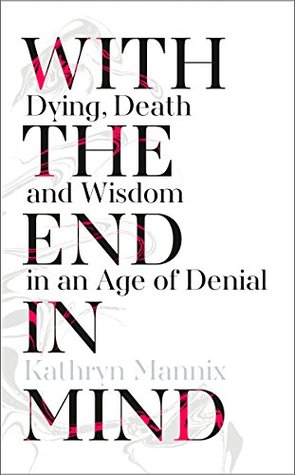More on this book
Community
Kindle Notes & Highlights
Read between
February 20 - April 25, 2019
little to fear and much to prepare for.
There are only two days with fewer than twenty-four hours in each lifetime, sitting like bookends astride our lives: one is celebrated every year, yet it is the other that makes us see living as precious.
one person’s avoidance is in direct conflict with the other’s need to plan, and this is stressful for both of them. Finding middle ground on which to meet and work together requires sensitivity, tact and patience, and perhaps even the help of a trusted third party.
Everybody prefers to manage things ‘my way’. The end of life is no different.
People are not limited so much by their illness as by their attitude to it. The illness may present physical challenges, but the emotional challenge is often far more important.
Enabling people to be architects of their own solution is key to respecting their dignity. They are only in a new phase of life; they have not abdicated personhood.
Whether CBT first aid or the full CBT intervention, the core principle is that we are made unhappy by the way we interpret events. Distressing emotions are triggered by disturbing underlying thoughts, and helping a patient to notice these thoughts and to consider whether or not they are accurate and helpful is key to enabling them to change.
If you worry about having a conversation like this with someone you know well, then perhaps you could join in a ‘death café’,
Working in the face of death will always feel profound, numinous and sometimes overwhelming – that’s why we work in teams.
families unable to recognise when promoting living has segued into a purgatorial extension of dying without hope of improvement.
It’s a truth rarely acknowledged that as we live longer thanks to modern medicine, it is our years of old age that are extended, not our years of youth and vigour. What are we doing to ourselves?
almost all of the people we have the privilege of meeting towards the end of their lives are extraordinary. They tolerate their symptoms with courage. They adjust their hope from avoiding death to embracing each day as death approaches. They can let go of the tyranny of planning and worrying about the future, and simply bask in the present.
we all reach the end of our lives with a mixture of satisfaction and regret over our experiences – and the time to adjust that balance is now.
what can we do that adjusts the balance towards satisfaction and away from regret, even while we are not anticipating the approach of death?
immortality is recognised as a poisoned chalice.


